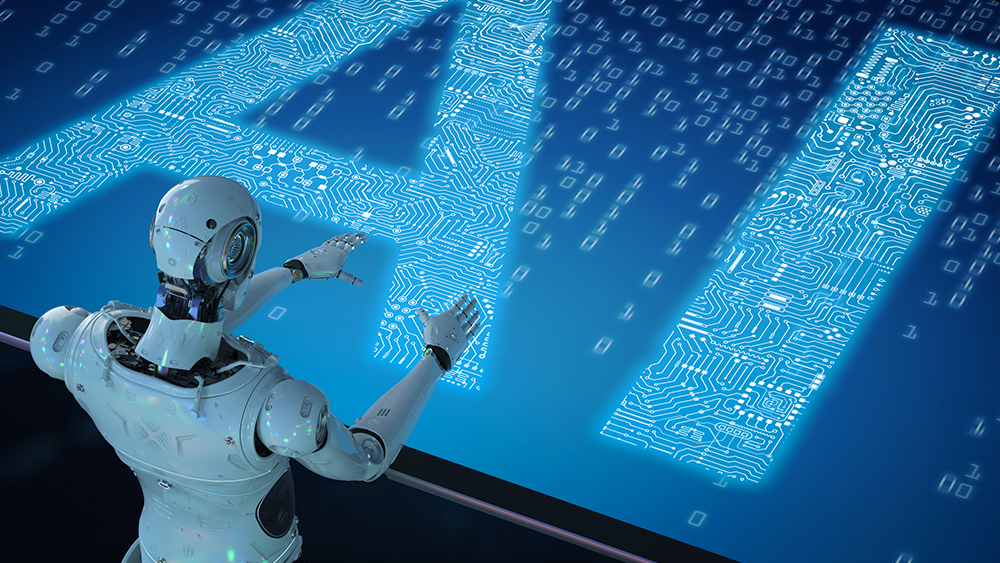In the fast-paced world of business, staying ahead of the competition often means leveraging the latest technological advancements. As we move further into 2025, one of the most transformative technologies driving change is machine learning. Machine learning (ML) is a subset of artificial intelligence (AI) that enables systems to learn and improve from experience without being explicitly programmed. As this technology continues to evolve, it is playing a pivotal role in enhancing automation, creating more efficient, smarter, and scalable business processes. In this article, we will explore how machine learning is revolutionizing automation across various industries and what this means for businesses in 2025.
Automation has been a staple in industries like manufacturing and data processing for decades. However, in recent years, AI and automation technologies have rapidly evolved, enabling automation not just of manual tasks, but of complex processes that require decision-making, data analysis, and optimization. Machine learning algorithms are now at the heart of this transformation, improving the efficiency and accuracy of automated systems across a variety of sectors, including marketing, customer service, HR, and operations.
Machine learning’s ability to analyze vast amounts of data, identify patterns, and make predictions is what sets it apart from traditional automation technologies. The rise of machine learning has also led to innovations in digital marketing, e-commerce businesses, and even the way businesses handle startup ideas and business trends in 2025.
The Role of Machine Learning in Business Automation
In 2025, machine learning is integral to business automation in several key ways. The main advantage of integrating machine learning with automation is the ability to continually learn from data, adapt to new situations, and improve efficiency over time. Here are several areas where machine learning is making a profound impact:
1. Enhanced Data Analysis and Decision-Making
One of the most valuable applications of machine learning in business automation is its ability to process large volumes of data quickly and accurately. Machine learning algorithms can sift through massive datasets, identify patterns, and offer actionable insights that were previously difficult or impossible to uncover. This enables businesses to make more informed decisions, whether in terms of marketing strategies, operational improvements, or customer engagement tactics.
For example, in AI in business operations, machine learning algorithms analyze data from various sources to optimize processes, forecast demand, or predict equipment failures before they happen. These capabilities are critical for businesses in manufacturing, logistics, and supply chain management, where data-driven insights can significantly enhance efficiency.

2. Personalization of Customer Experiences
Machine learning is driving personalization in customer interactions, particularly in industries like e-commerce, retail, and entertainment. By analyzing customer data, such as past behavior, preferences, and demographics, machine learning models can predict what a customer might want next and tailor experiences accordingly. This level of personalization has become a game-changer for businesses, enabling them to offer products, services, and content that resonate with individual customers.
For instance, in e-commerce, machine learning algorithms recommend products based on previous browsing behavior or purchase history, increasing the chances of a sale. Similarly, content marketing is benefiting from machine learning tools that help businesses create more targeted and effective content for their audiences.
By automating the personalization process, businesses can not only improve customer satisfaction but also increase conversion rates and customer loyalty. For online businesses, machine learning-powered recommendation engines are proving to be incredibly valuable in driving sales and enhancing the customer experience.
3. Automating Customer Support and Engagement
Machine learning is also playing a significant role in improving customer support through chatbots and virtual assistants. Traditional customer support often requires significant manpower and can result in delays and inefficiencies. However, with machine learning, chatbots are becoming smarter and more capable of handling a wider range of customer inquiries.
These AI-driven systems learn from interactions and continuously improve their responses, ensuring that customers receive accurate and timely assistance. This allows businesses to provide 24/7 customer support without the need for constant human intervention. Whether it’s addressing common questions, resolving simple issues, or guiding users through complex processes, machine learning enhances customer support automation.
By automating customer engagement, businesses can save time and resources while improving service quality. For businesses in sectors like health and wellness startups, where customer inquiries can be diverse, AI-powered solutions are helping scale operations efficiently.
4. Automating Recruiting and HR Tasks
In human resources, machine learning is automating many of the traditional manual processes involved in recruitment and employee management. For example, machine learning algorithms can analyze resumes, identify the best candidates based on historical data, and even predict employee performance and tenure. This significantly speeds up the recruitment process and ensures that companies make better hiring decisions.
Moreover, machine learning is also helping with employee retention by identifying patterns that may indicate dissatisfaction or burnout. By automating these processes, HR teams can focus on higher-level strategic activities, while machine learning handles the repetitive tasks. This is especially helpful for small business ideas and startups looking to optimize their HR processes without large teams.
5. Predictive Maintenance and Operations Optimization
Machine learning is a key enabler of predictive maintenance in industries such as manufacturing, energy, and transportation. Traditional maintenance schedules are often based on fixed intervals, but machine learning allows businesses to shift to a more proactive approach by predicting when equipment is likely to fail. By analyzing historical data and real-time monitoring, machine learning models can forecast maintenance needs, reducing downtime and increasing equipment lifespan.
This approach is more cost-effective than traditional maintenance models and ensures that operations continue smoothly. In industries with complex supply chains, AI and automation solutions help streamline operations by predicting supply chain disruptions and suggesting corrective actions.
6. Fraud Detection and Risk Management
Another significant application of machine learning in automation is fraud detection and risk management. Financial institutions, insurance companies, and e-commerce businesses are using machine learning algorithms to detect unusual activity, predict potential fraud, and manage risks more effectively. These systems can analyze transaction data in real-time and identify patterns that might indicate fraudulent behavior, such as unusual spending habits or account activity.
Machine learning also plays a key role in credit scoring, by using historical data and various financial indicators to assess the creditworthiness of individuals or businesses. By automating these processes, businesses can reduce human error, improve the accuracy of their risk assessments, and provide better customer service.
Machine Learning and Automation in Startups
Machine learning is particularly advantageous for tech-based startups, which can integrate AI-powered automation from the very beginning, allowing them to scale faster and more efficiently. By leveraging machine learning tools, startups can automate tasks like customer onboarding, lead generation, marketing, and customer support without needing large teams or significant investments in infrastructure.
For startups that are focusing on e-commerce innovations, machine learning can optimize inventory management, pricing strategies, and supply chain logistics. For example, machine learning algorithms can analyze sales data and predict demand for specific products, allowing businesses to adjust their inventory levels in real-time and avoid overstocking or stockouts.
The Future of Machine Learning in Automation
As we look ahead to 2025 and beyond, the role of machine learning in automation is only expected to grow. Innovations in AI, coupled with advancements in computing power, will make machine learning even more accessible and efficient. Businesses of all sizes will be able to adopt machine learning technologies, driving greater levels of automation and unlocking new efficiencies across industries.
Machine learning is helping businesses create a more personalized, streamlined, and data-driven approach to operations. From predictive maintenance to intelligent customer support, machine learning is enhancing automation and making it smarter. Businesses that leverage these technologies will not only improve operational efficiency but also gain a competitive edge by providing better products, services, and customer experiences.
Conclusion
Machine learning is fundamentally transforming the way businesses approach automation in 2025. By providing intelligent systems that can learn, adapt, and improve over time, machine learning is enabling businesses to automate not just routine tasks, but complex processes that require decision-making and problem-solving. The impact of machine learning on business operations is profound, offering benefits such as enhanced data analysis, personalized customer experiences, smarter decision-making, and more efficient workflows.
For companies across industries—from AI technologies tools to sustainable businesses—machine learning is becoming a vital tool for staying competitive and meeting the demands of the modern marketplace. As this technology continues to evolve, businesses that embrace machine learning-powered automation will be well-positioned to thrive in the digital age.

